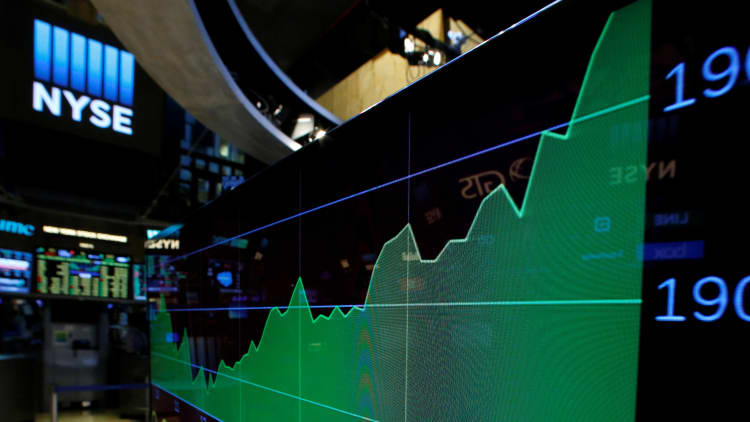
The benchmark U.S. S&P 500 equities index is showing a worrying positive correlation with macro surprises at a time when the latter are peaking, according to analysts at Credit Suisse.
While many of their clients are content to retain "long" U.S. equities positions for now, analysts at the Swiss bank say they are "underweight" the regional asset class in local currency terms, in research published Thursday.
They cite concerns over firstly, valuations with price-to-earnings metrics close to the all-time high levels reached around the market crash of 1929. A price-to-earnings ratio is an important metric used by analysts to gauge the value of a particular stock.
Secondly, they suggest concerns over profit margins potentially being hit by a relative jump in labor costs and finally, cyclicality. On the last point, Credit Suisse disagrees with many of its clients who are positioned to match a belief that the U.S. is in the early stages of the economic cycle and thus favor remaining "overweight" cyclical equities, saying instead that labor market tightness reflects that the U.S. is actually in a later stage of the economic cycle.
How far can bond yields rise?
Turning to the newly inaugurated U.S. president, the analysts report little consensus, even among what they describe as "well informed funds". Reading across from clients' views, they cite the "Trump trades" as being overweight defense stocks, overweight Japan as a leveraged play on U.S. bond yields and U.S. growth and a "long" position on Russia.
Credit Suisse posits that most clients have moved to a small net long equities position in the wake of the election due to global earnings revisions hovering around a 5-year high, inflation expectations rising and a perception that the asset class is underowned and provides a cheap alternative to deflation hedges.
The biggest source of debate regarding equity valuations is how far bond yields can rise from here, with the Swiss bank's researchers seeing more upside risk than their clients.
"Clients remain bearish on bonds, but see only a small rise in bond yields from here. In our view, the risk is that bond yields rise more than the consensus expects (remembering that U.S. yields hit 3.0 percent during the taper tantrum), and thus financials continue to outperform," opine the analysts.
"Markets continue to believe the recent pick-up in inflation is temporary and that inflation remains well contained. However, we see the risk of inflation surprising on the upside," the note continues.
Growing comfort from Europe
While appetite for European equities remains muted with investors taking a more negative stance than they have done for four years, Credit Suisse claims they see a growing comfort with the region's backdrop.
The French presidential election dominates regional concerns – despite few anticipating the right-wing's Marine Le Pen will win the upcoming vote, investors fear market volatility may spike during the campaigning period.
While this year's Dutch elections are also a source of anxiety to some investors, Italy's political situation garnered limited discussion time.
Looking at emerging markets, macro concerns persist for many of Credit Suisse's clients. Worries focus on the sensitivity of emerging market equities to both the U.S. dollar (which is widely expected by the bank's clients to continue rallying) and index-linked bond yields. The chief concern, however, is the growing perceived threat of protectionist measures being implemented by the new U.S. administration.
"We believe that global emerging markets should be more resilient to higher U.S. rates/a stronger dollar because of the sharp improvement in their basic balance of payments deficits, while the sector adjusted P/E is now at a 20 percent discount to developed markets, a 12-year low," argue the analysts, refuting the overly bearish sentiment expressed by their clients.
Finally, turning to the world's second-largest economy whose credit and real estate market dynamics have provided rising sources of concern for many investors over the past twelve months, Credit Suisse's analysts claim, "China appears to have fallen off investors' radar screens for now."
WATCH: Trader bets against the stock market rally

Correction: This story was revised to correct that price-to-earnings metrics were close to the all-time high levels reached around the 1929 market crash.


